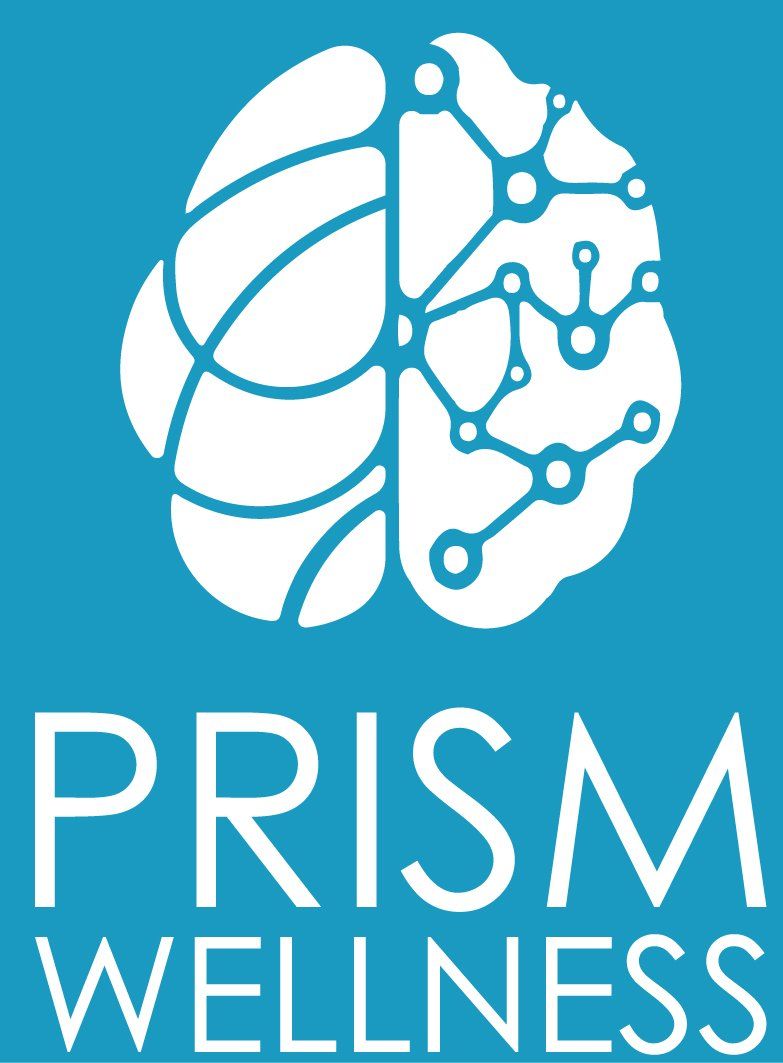Prism Wellness
KETAMINE ASSISTED PSYCHOTHERAPY (KAP) TRAINING
Expand Your Practice with Our Ketamine Assisted Psychotherapy Training: A Joint Venture by Triangle Wellness & Recovery and Prism Wellness
About the Program
Triangle Wellness & Recovery, in close collaboration with Prism Wellness, is excited to announce the launch of our intensive Ketamine Assisted Psychotherapy (KAP) training program. This training program will provide you with the practical knowledge and skills to start to incorporate KAP into your practice. This foundational and comprehensive training is delivered in two parts and includes two optional experiential components with dissolving troches and nasal spray or IM ketamine administration. The KAP Training program is open to provisionally and fully licensed psychotherapy clinicians and medication providers. After completion of Part 2 and passing a written exam, participants will receive a certificate of completion, earn 20 CE credits*, be eligible to participate in ongoing KAP supervision, advertise that they have completed TWR training in KAP and have priority access to TWR ketamine services.
*CE Credits are Not Covered by all Licensing Boards
Primary Faculty


KAP Training - Part 1
After completing Part 1, you will…
- Be able to confidently talk to your clients about ketamine and KAP
- Understand the evidence base for ketamine for treatment resistant depression and suicidality
- Be able to explain the concept of neuroplasticity in a way that is accessible for your clients
- Understand the basic differences between the neurobiological mechanisms of ketamine and traditional antidepressants
- Understand the risks of ketamine abuse/dependence and illicit use of ketamine
- Understand the spectrum of possible psychoactive effects from ketamine and the key factors that influence the client’s experience
- List three different models of KAP
- Understand the fundamental differences between traditional psychotherapy and KAP
- Understand how to incorporate principles of Acceptance and Commitment Therapy into KAP
- Understand the key concepts of informed consent for KAP
- Understand the role of music and the importance of set and setting in KAP
- Understand how a client can use breath to influence their ketamine experience
- Hear directly from a client who has benefitted from Ketamine and KAP
- Have had the experience of being in both the client and therapist role for KAP using dissolving troches
-
*COMPLETION OF LEVEL 1 ALONE DOES NOT ADEQUATELY PREPARE YOU TO START OFFERING KAP TO YOUR CLIENTS
KAP Training - Part 2
After completing part 2, you will…
- Be able to list and describe the key principles of psychedelic psychotherapy
- Identify ethical issues surrounding drug-assisted psychotherapy
- Be able to confidently discuss other potentially therapeutic psychedelic substances (including Psilocybin and MDMA) with your clients including anticipated timelines for FDA approval
- Know how to develop or adapt treatment plans for psychedelic psychotherapy
- Be able to describe the wider cultural and social context of drug-assisted psychotherapy
- Understand the key differences between ketamine and more traditional psychedelic substances
- Understand what micro-doing is and the current evidence for clinical efficacy
- Understand the evidence base for ketamine in treating substance use disorders, anxiety disorders, eating disorders and PTSD
- Understand schools of thought on the use of ketamine for substance use disorders
- Understand the medical screening process for ketamine treatment and anticipate which clients may not be approved for ketamine administration
- Have had the experience of being in both the client and therapist role for KAP using nasal spray or intramuscular injection
- Understand ways to protect yourself from liability when practicing KAP
- Identify at least two distinct models of integrating KAP into the existing paradigm of psychiatric care which you can propose to collaborating medical providers
- Have access to tools and materials you can start incorporating into your practice including TWR’s Ketamine Companion Workbook and Prism Wellness’s intention setting guide
- Be listed on TWR’s website as a TWR trained KAP therapist
- Be eligible to participate in a monthly consultation group for KAP
Program Cost and Schedule
Cost:
Financial assistance may be available, contact us for more details
2024 Level 1 training dates (all are weekend dates)
- January 27-28
- March 16-17
- May 18-19
2024 Level 2 training dates (more pending)
- May 4-5
*Curriculum subject to change without notice
To enroll or ask questions: info@twrnc.com

